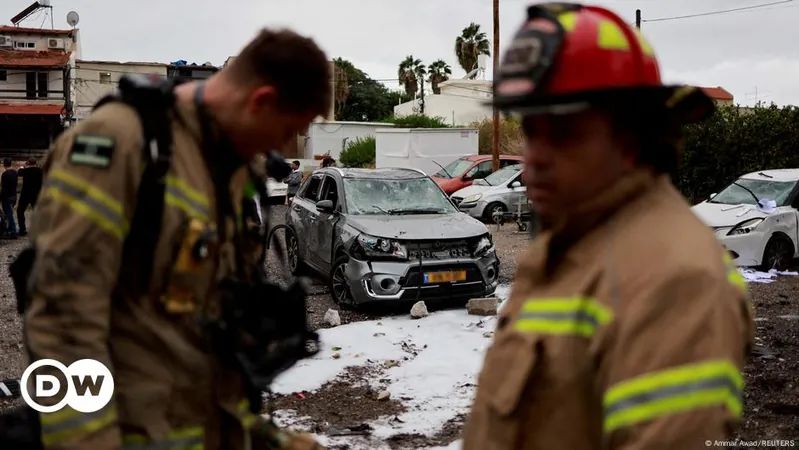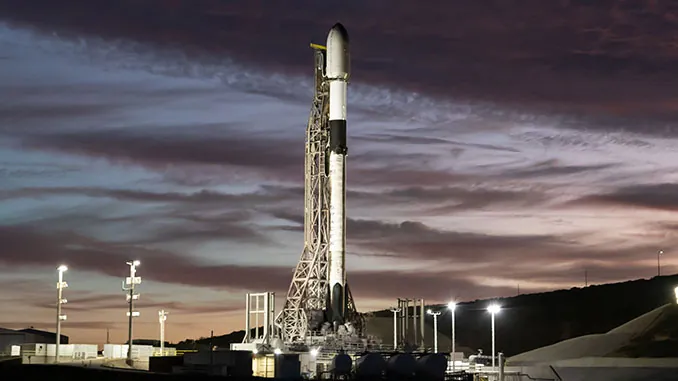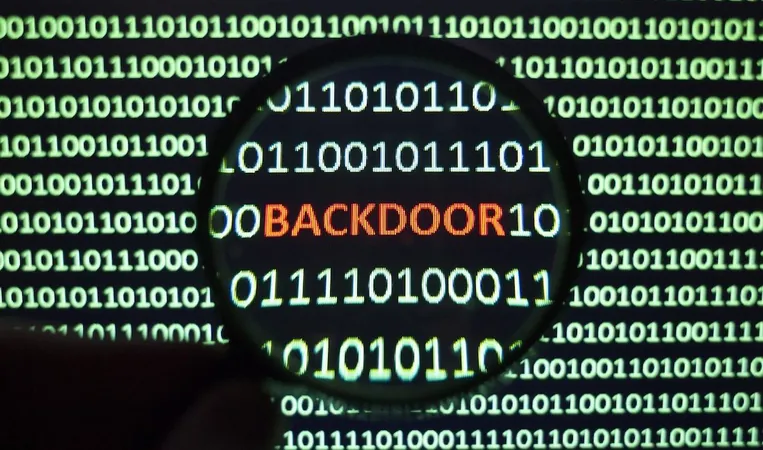
Hezbollah Launches Major Rocket Attack on Israel: Escalating Regional Tensions?
2024-11-24
Author: Ling
Hezbollah Launches Major Rocket Attack on Israel
On November 24, 2024, Hezbollah executed one of its largest assaults against Israel, launching approximately 250 projectiles, including rockets that reached as far as Tel Aviv. This escalation marks a significant intensification of the ongoing conflict between Hezbollah and the Israeli Defense Forces (IDF), which has been simmering since late September, particularly after Hezbollah's support for Hamas amidst heightened Israeli-Palestinian tensions.
Casualties and Damage
Casualties have already begun to mount in this latest crisis. Reports indicate that at least seven individuals have been injured due to shrapnel from intercepted missiles, with some homes in central Israel sustaining damage. The Israel Defense Forces confirmed that many of the projectiles were intercepted, but those that landed caused notable destruction.
Israeli Retaliation
In retaliation, Israel targeted Hezbollah positions in southern Lebanon, launching airstrikes that followed one of its most aggressive attacks on Beirut, which caused significant destruction to the militant group's infrastructure. Notably, the Israeli military emphasized that its conflict is directly with Hezbollah rather than the Lebanese army, despite Lebanon's military reporting that one of its soldiers was killed, and 18 others were wounded in the retaliatory strikes.
Geopolitical Implications
The geopolitical landscape is increasingly complex. In a related development, Israeli Prime Minister Benjamin Netanyahu condemned the murder of an Israeli-Moldovan rabbi in the United Arab Emirates (UAE), labeling it a terrorist incident and asserting that Israel would pursue justice against those accountable. The UAE has reportedly arrested three suspects linked to this high-profile case. Meanwhile, tensions remain high in the region, with the UN warning that the conflict could spill over into Syria—a territory already ravaged by its own civil war.
Diplomatic Efforts
On the diplomatic front, efforts for de-escalation continue with EU foreign policy chief Josep Borrell urging both Israel and Hezbollah to accept a ceasefire. As these events unfold, international stakeholders are closely monitoring the situation, fearing that the renewed hostilities could lead to a broader regional crisis that encompasses multiple nations and non-state actors.
Global Ramifications
The ramifications of the recent attacks are sure to be felt internationally, pushing the Middle East further into a defining moment in its history. The global community watches apprehensively to see how this conflict will develop and whether peace talks may put some distance between the warring parties.



 Brasil (PT)
Brasil (PT)
 Canada (EN)
Canada (EN)
 Chile (ES)
Chile (ES)
 España (ES)
España (ES)
 France (FR)
France (FR)
 Hong Kong (EN)
Hong Kong (EN)
 Italia (IT)
Italia (IT)
 日本 (JA)
日本 (JA)
 Magyarország (HU)
Magyarország (HU)
 Norge (NO)
Norge (NO)
 Polska (PL)
Polska (PL)
 Schweiz (DE)
Schweiz (DE)
 Singapore (EN)
Singapore (EN)
 Sverige (SV)
Sverige (SV)
 Suomi (FI)
Suomi (FI)
 Türkiye (TR)
Türkiye (TR)